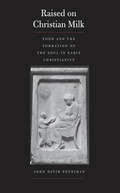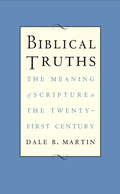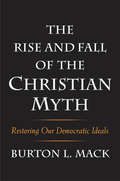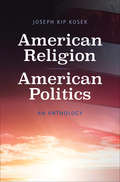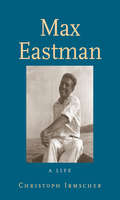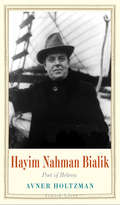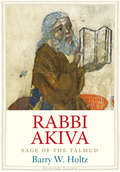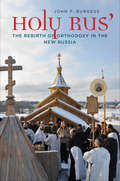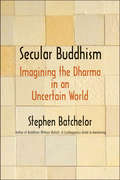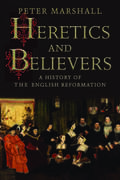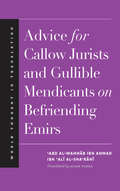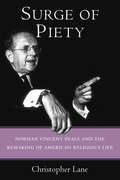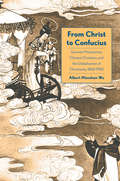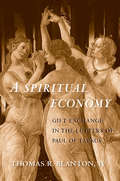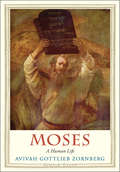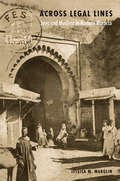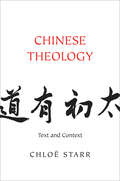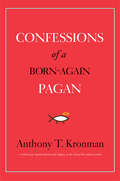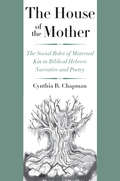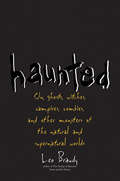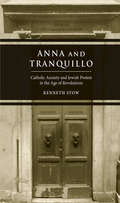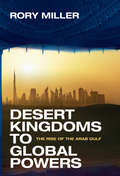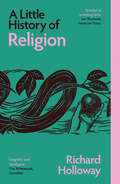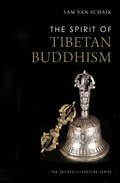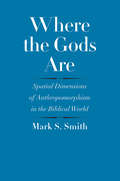- Table View
- List View
Raised on Christian Milk: Food and the Formation of the Soul in Early Christianity
by John David PennimanA fascinating new study of the symbolic power of food and its role in forming kinship bonds and religious identity in early Christianity Scholar of religion John Penniman considers the symbolic importance of food in the early Roman world in an engaging and original new study that demonstrates how “eating well” was a pervasive idea that served diverse theories of growth, education, and religious identity. Penniman places early Christian discussion of food in its moral, medical, legal, and social contexts, revealing how nourishment, especially breast milk, was invested with the power to transfer characteristics, improve intellect, and strengthen kinship bonds.
Biblical Truths: The Meaning of Scripture in the Twenty-first Century
by Dale B. MartinA leading biblical scholar's landmark work challenges the historical realism that has dominated the discipline for more than two centuries How can a modern person, informed by science and history, continue to recite the traditional creeds and confessions of the Christian church? What does the Bible mean and how do we verify biblical truths? In this groundbreaking book, a leading biblical scholar urges readers to be more creative interpreters of biblical texts, mapping out an alternative way of reading that is not first and foremost about understanding what those texts would have meant for the original authors and readers. Limiting our study to the ancient meaning of the text, he argues, has produced either bad history, or bad theology, or both. One cannot derive robustly orthodox Christian doctrine or theology from a mere "historical" interpretation of the Bible. Martin offers instead theological readings of the New Testament that are faithful to Christian orthodoxy as generally understood, but without attempting a "foundationalist" understanding of the meaning of the text. His provocative and ambitious book demonstrates how theology and scripture can remain vital in the twenty-first century.
The Rise and Fall of the Christian Myth: Restoring Our Democratic Ideals
by Burton L. MackA preeminent scholar explores the evolution of the Christian worldview and argues that it no longer offers a satisfactory vision for our democratic, multicultural society This book is the culmination of a lifelong scholarly inquiry into Christian history, religion as a social institution, and the role of myth in the history of religions. Mack shows that religions are essentially mythological and that Christianity in particular has been an ever-changing mythological engine of social formation, from Roman times to its distinct American expression in our time. The author traces the cultural influence of the Christian myth that has persisted for sixteen hundred years but now should be much less consequential in our social and cultural life, since it runs counter to our democratic ideals. We stand at a critical impasse: badly splintered by conflicting groups pursuing their own social interests, a binding common myth needs to be established by renewing a truly cohesive national and international story rooted in our democratic and egalitarian origins, committed to freedom, equality, and vital human values.
American Religion, American Politics: An Anthology
by Jon Butler Joseph Kip KosekEssential primary sources reveal the central tensions between American politics and religion throughout the nation’s history Despite the centrality of separation of church and state in American government, religion has played an important role in the nation’s politics from colonial times through the present day. This essential anthology provides a fascinating history of religion in American politics and public life through a wide range of primary documents. It explores contentious debates over freedom, tolerance, and justice, in matters ranging from slavery to the nineteenth-century controversy over Mormon polygamy to the recent discussions concerning same-sex marriage and terrorism. Bringing together a diverse range of voices from Protestant, Catholic, Jewish, Muslim, and secular traditions and the words of historic personages, from Thomas Jefferson, Abraham Lincoln, and Frances Willard to John F. Kennedy and Martin Luther King, Jr., this collection is an invaluable introduction to one of the most important conversations in America’s history.
Max Eastman: A Life
by Christoph IrmscherThe definitive biography of a radical activist and intellectual Max Eastman (1883–1969) was a prolific writer, radical, and public intellectual who helped shape the twentieth century. While researching this masterful work, acclaimed biographer Christoph Irmscher was granted unprecedented access to the Eastman family archive, allowing him to document little-known aspects of the famously handsome and charismatic radical. Considered one of the “hottest radicals” of his time, Eastman edited two of the most important modernist magazines, The Masses and The Liberator, and campaigned for women’s suffrage and world peace. A fierce critic of Joseph Stalin, Eastman befriended and translated Leon Trotsky and remained unafraid to express unpopular views, drawing criticism from both conservatives and the Left. Set against the backdrop of several decades of political and ideological turmoil, and interweaving Eastman’s singular life with stories of the fascinating people he knew and loved, this book will have broad interdisciplinary appeal in twentieth-century history and politics, intellectual history, and literary studies.
Hayim Nahman Bialik: Poet of Hebrew (Jewish Lives)
by Prof. Avner HoltzmanA moving inquiry into the dramatic life, epic success, and ultimate tragedy of the great Hebrew poet By the time he was twenty-eight, Hayim Nahman Bialik was already considered the National Hebrew Poet. He had only published a single collection, but his deeply personal poetry established a profound link between the secular and the traditional that would become paramount to a national Jewish identity in the twentieth century. When he died unexpectedly in 1934, the outpouring of grief was unprecedented, confirming him as a father figure for the Zionist movement in Palestine, and around the world. Using extensive research and elegant readings of Bialik's poems, Avner Holtzman investigates the poet's dramatic life, complex personality, beloved verse, and continued popularity. This clear-eyed and thorough biography explores how Bialik overcame intense personal struggles to become a charismatic literary leader at the core of modern Hebrew culture.
Rabbi Akiva: Sage of the Talmud
by Barry W. HoltzA compelling and lucid account of the life and teachings of a founder of rabbinic Judaism and one of the most beloved heroes of Jewish history Born in the Land of Israel around the year 50 C. E. , Rabbi Akiva was the greatest rabbi of his time and one of the most important influences on Judaism as we know it today. Traditional sources tell how he was raised in poverty and unschooled in religious tradition but began to learn the Torah as an adult. In the aftermath of the destruction of Jerusalem by the Romans in 70 C. E. , he helped shape a new direction for Judaism through his brilliance and his character. Mystic, legalist, theologian, and interpreter, he disputed with his colleagues in dramatic fashion yet was admired and beloved by his peers. Executed by Roman authorities for his insistence on teaching Torah in public, he became the exemplar of Jewish martyrdom. Drawing on the latest historical and literary scholarship, this book goes beyond older biographies, untangling a complex assortment of ancient sources to present a clear and nuanced portrait of Talmudic hero Rabbi Akiva.
Holy Rus': The Rebirth of Orthodoxy in the New Russia
by John P. BurgessA fascinating, vivid, and on-the-ground account of Russian Orthodoxy's resurgence A bold experiment is taking place in Russia. After a century of being scarred by militant, atheistic communism, the Orthodox Church has become Russia's largest and most significant nongovernmental organization. As it has returned to life, it has pursued a vision of reclaiming Holy Rus': that historical yet mythical homeland of the eastern Slavic peoples; a foretaste of the perfect justice, peace, harmony, and beauty for which religious believers long; and the glimpse of heaven on earth that persuaded Prince Vladimir to accept Orthodox baptism in Crimea in A. D. 988. Through groundbreaking initiatives in religious education, social ministry, historical commemoration, and parish life, the Orthodox Church is seeking to shape a new, post-communist national identity for Russia. In this eye-opening and evocative book, John Burgess examines Russian Orthodoxy's resurgence from a grassroots level, providing Western readers with an enlightening, inside look at the new Russia.
Secular Buddhism: Imagining the Dharma in an Uncertain World
by Stephen BatchelorAn essential collection of Stephen Batchelor's most probing and important work on secular Buddhism As the practice of mindfulness permeates mainstream Western culture, more and more people are engaging in a traditional form of Buddhist meditation. However, many of these people have little interest in the religious aspects of Buddhism, and the practice occurs within secular contexts such as hospitals, schools, and the workplace. Is it possible to recover from the Buddhist teachings a vision of human flourishing that is secular rather than religious without compromising the integrity of the tradition? Is there an ethical framework that can underpin and contextualize these practices in a rapidly changing world? In this collected volume of Stephen Batchelor's writings on these themes, he explores the complex implications of Buddhism's secularization. Ranging widely--from reincarnation, religious belief, and agnosticism to the role of the arts in Buddhist practice--he offers a detailed picture of contemporary Buddhism and its attempt to find a voice in the modern world.
Heretics and Believers: A History of the English Reformation
by Peter MarshallA sumptuously written people’s history and a major retelling and reinterpretation of the story of the English Reformation Centuries on, what the Reformation was and what it accomplished remain deeply contentious. Peter Marshall’s sweeping new history—the first major overview for general readers in a generation—argues that sixteenth-century England was a society neither desperate for nor allergic to change, but one open to ideas of “reform” in various competing guises. King Henry VIII wanted an orderly, uniform Reformation, but his actions opened a Pandora’s Box from which pluralism and diversity flowed and rooted themselves in English life. With sensitivity to individual experience as well as masterfully synthesizing historical and institutional developments, Marshall frames the perceptions and actions of people great and small, from monarchs and bishops to ordinary families and ecclesiastics, against a backdrop of profound change that altered the meanings of “religion” itself. This engaging history reveals what was really at stake in the overthrow of Catholic culture and the reshaping of the English Church.
Advice for Callow Jurists and Gullible Mendicants on Befriending Emirs
by Adam Sabra Abd al-Wahhab al-SharaniThis mirror for princes sheds light on the relationship between spiritual and political authority in early modern Egypt This guide to political behavior and expediency offers advice to Sufi shaykhs, or spiritual guides, on how to interact and negotiate with powerful secular officials, judges, and treasurers, or emirs. Translated into English for the first time, it is a unique account of the relationship between spiritual and political authority in late medieval / early modern Islamic society.
Surge of Piety: Norman Vincent Peale and the Remaking of American Religious Life
by Christopher LaneThe dramatic untold story of how Norman Vincent Peale and a handful of conservative allies fueled the massive rise of religiosity in the United States during the 1950s Near the height of Cold War hysteria, when the threat of all-out nuclear war felt real and perilous, Presbyterian minister Norman Vincent Peale published The Power of Positive Thinking. Selling millions of copies worldwide, the book offered a gospel of self-assurance in an age of mass anxiety. Despite Peale's success and his ties to powerful conservatives such as Dwight D. Eisenhower, J. Edgar Hoover, and Joseph McCarthy, the full story of his movement has never been told. Christopher Lane shows how the famed minister's brand of Christian psychology inflamed the nation's religious revival by promoting the concept that belief in God was essential to the health and harmony of all Americans. We learn in vivid detail how Peale and his powerful supporters orchestrated major changes in a nation newly defined as living "under God. " This blurring of the lines between religion and medicine would reshape religion as we know it in the twentieth and twenty-first centuries.
From Christ to Confucius: German Missionaries, Chinese Christians, and the Globalization of Christianity, 1860-1950
by Albert Monshan WuIn this accessibly written and empirically based study, Albert Wu documents how German missionaries—chastened by their failure to convert Chinese people to Christianity—reconsidered their attitudes toward Chinese culture and Confucianism. In time, their increased openness catalyzed a revolution in thinking among European Christians about the nature of Christianity itself. At a moment when Europe’s Christian population is falling behind those of South America and Africa, Wu’s provocative analysis sheds light on the roots of Christianity’s global shift.
A Spiritual Economy: Gift Exchange in the Letters of Paul of Tarsus
by Thomas R. Blanton IVThomas Blanton sheds light on the philosophy surrounding gift giving in Paul's letters and on modern theories of gift exchange through the lens of religion. The exchange of gifts is a fundamental part of society and a foundational element in Greco-Roman religions. Combining theories of gift exchange, both modern and Greco-Roman, Thomas Blanton reveals how religious discourse--in the guise of "spiritual gifts" believed to come from Israel's god--is instrumental in the formation of sociopolitical hierarchies and the assignment of honor and prestige. Blanton uses an interdisciplinary approach that incorporates religion, classics, sociology, and anthropology to investigate the economy of gift exchange shown in Paul's letters.
Moses: A Human Life (Jewish Lives)
by Avivah Gottlieb ZornbergAn unprecedented portrait of Moses's inner world and perplexing character, by a distinguished biblical scholar No figure looms larger in Jewish culture than Moses, and few have stories more enigmatic. Avivah Gottlieb Zornberg, acclaimed for her many books on Jewish thought, turns her attention to Moses in this remarkably rich, evocative book. Drawing on a broad range of sources--literary as well as psychoanalytic, a wealth of classical Jewish texts alongside George Eliot, W. G. Sebald, and Werner Herzog--Zornberg offers a vivid and original portrait of the biblical Moses. Moses's vexing personality, his uncertain origins, and his turbulent relations with his own people are acutely explored by Zornberg, who sees this story, told and retold, as crucial not only to the biblical past but also to the future of Jewish history.
Across Legal Lines: Jews and Muslims in Modern Morocco
by Jessica M. MarglinA previously untold story of Jewish-Muslim relations in modern Morocco, showing how law facilitated Jews' integration into the broader Moroccan society in which they lived Morocco went through immense upheaval in the nineteenth and early twentieth centuries. Through the experiences of a single Jewish family, Jessica Marglin charts how the law helped Jews to integrate into Muslim society--until colonial reforms abruptly curtailed their legal mobility. Drawing on a broad range of archival documents, Marglin expands our understanding of contemporary relations between Jews and Muslims and changes the way we think about Jewish history, the Middle East, and the nature of legal pluralism.
Chinese Theology: Text and Context
by Chloë StarrIn this groundbreaking and authoritative study, Chloë Starr explores key writings of Chinese Christian intellectuals, from philosophical dialogues of the late imperial era to sermons and micro blogs of theological educators and pastors in the twenty-first century. Through a series of close textual readings, she sheds new light on the fraught issues of Chinese Christian identity and the evolving question of how Christianity should relate to Chinese society.
Confessions of a Born-Again Pagan
by Anthony T. KronmanIn this passionate and searching book, Anthony Kronman offers a third way--beyond atheism and religion--to the God of the modern world "An astonishing, . . . epically ambitious book. . . . An intellectual adventure story based on the notion that ideas drive history, and that to dedicate yourself to them is to live a bigger, more intense life. "--David Brooks, New York Times We live in an age of disenchantment. The number of self-professed "atheists" continues to grow. Yet many still feel an intense spiritual longing for a connection to what Aristotle called the "eternal and divine. " For those who do, but demand a God that is compatible with their modern ideals, a new theology is required. This is what Anthony Kronman offers here, in a book that leads its readers away from the inscrutable Creator of the Abrahamic religions toward a God whose inexhaustible and everlasting presence is that of the world itself. Kronman defends an ancient conception of God, deepened and transformed by Christian belief--the born-again paganism on which modern science, art, and politics all vitally depend. Brilliantly surveying centuries of Western thought--from Plato to Augustine, Aquinas, and Kant, from Spinoza to Nietzsche, Darwin, and Freud--Kronman recovers and reclaims the God we need today.
The House of the Mother: The Social Roles of Maternal Kin in Biblical Hebrew Narrative and Poetry
by Prof. Cynthia R. ChapmanA novel approach to Israelite kinship, arguing that maternal kinship bonds played key social, economic, and political roles for a son who aspired to inherit his father's household Upending traditional scholarship on patrilineal genealogy, Cynthia Chapman draws on twenty years of research to uncover an underappreciated yet socially significant kinship unit in the Bible: "the house of the mother. " In households where a man had two or more wives, siblings born to the same mother worked to promote and protect one another's interests. Revealing the hierarchies of the maternal houses and political divisions within the national house of Israel, this book provides us with a nuanced understanding of domestic and political life in ancient Israel.
Haunted: On Ghosts, Witches, Vampires, Zombies, and Other Monsters of the Natural and Supernatural Worlds
by Leo BraudyAn award-winning scholar and author charts four hundred years of monsters and how they reflect the culture that created them Leo Braudy, a finalist for both the National Book Award and the National Book Critics Circle Award, has won accolades for revealing the complex and constantly shifting history behind seemingly unchanging ideas of fame, war, and masculinity. Continuing his interest in the history of emotion, this book explores how fear has been shaped into images of monsters and monstrosity. From the Protestant Reformation to contemporary horror films and fiction, he explores four major types: the monster from nature (King Kong), the created monster (Frankenstein), the monster from within (Mr. Hyde), and the monster from the past (Dracula). Drawing upon deep historical and literary research, Braudy discusses the lasting presence of fearful imaginings in an age of scientific progress, viewing the detective genre as a rational riposte to the irrational world of the monstrous. Haunted is a compelling and incisive work by a writer at the height of his powers.
Anna and Tranquillo: Catholic Anxiety and Jewish Protest in the Age of Revolutions
by Kenneth StowA historical interpretation of the diary of an eighteenth-century Jewish woman who resisted the efforts of the papal authorities to force her religious conversion After being seized by the papal police in Rome in May 1749, Anna del Monte, a Jew, kept a diary detailing her captors' efforts over the next thirteen days to force her conversion to Catholicism. Anna's powerful chronicle of her ordeal at the hands of authorities of the Roman Catholic Church, originally circulated by her brother Tranquillo in 1793, receives its first English-language translation along with an insightful interpretation by Kenneth Stow of the incident's legal and historical significance. Stow's analysis of Anna's dramatic story of prejudice, injustice, resistance, and survival during her two-week imprisonment in the Roman House of Converts--and her brother's later efforts to protest state-sanctioned, religion-based abuses--provides a detailed view of the separate forces on either side of the struggle between religious and civil law in the years just prior to the massive political and social upheavals in America and Europe.
Desert Kingdoms to Global Powers: The Rise of the Arab Gulf
by Rory MillerAn expert in Arab Gulf politics offers a revealing analysis of the region&’s stunning rise to global power and the challenges it confronts today. Once just sleepy desert sheikdoms, the Arab Gulf states of Saudi Arabia, Oman, the United Arab Emirates, Qatar, Bahrain, and Kuwait now exert unprecedented influence on international affairs—the result of their almost unimaginable riches in oil and gas. In this accessible study, Gulf politics expert Rory Miller examines the achievements of these countries since the 1973 global oil crisis. He also investigates how the shrewd Arab Gulf rulers who have overcome crisis after crisis meet the unpredictable future. The Arab Gulf region has become a global hub for travel, tourism, sports, culture, trade, and finance. But can the autocratic regimes maintain stability at home and influence abroad as they deal with the demands of social and democratic reform? Miller considers an array of factors—Islamism, terrorism, the Arab Spring, volatile oil prices, global power dynamics, and others—to assess the region&’s future possibilities.
A Little History of Religion
by Richard HollowayFor curious readers young and old, a rich and colorful history of religion from humanity's earliest days to our own contentious times In an era of hardening religious attitudes and explosive religious violence, this book offers a welcome antidote. Richard Holloway retells the entire history of religion--from the dawn of religious belief to the twenty-first century--with deepest respect and a keen commitment to accuracy. Writing for those with faith and those without, and especially for young readers, he encourages curiosity and tolerance, accentuates nuance and mystery, and calmly restores a sense of the value of faith. Ranging far beyond the major world religions of Judaism, Islam, Christianity, Buddhism, and Hinduism, Holloway also examines where religious belief comes from, the search for meaning throughout history, today's fascinations with Scientology and creationism, religiously motivated violence, hostilities between religious people and secularists, and more. Holloway proves an empathic yet discerning guide to the enduring significance of faith and its power from ancient times to our own.
The Spirit of Tibetan Buddhism
by Sam Van SchaikA leading writer and researcher on Tibet, Sam van Schaik offers an accessible and authoritative introduction to Tibetan Buddhism by examining its key texts, from its origins in the eighth century to teachings practiced across the world today. In addition to demonstrating its richness and historical importance, van Schaik's fresh translations of and introductions to each text provide a comprehensive overview of Tibetan Buddhism's most popular teachings and concepts--including rebirth, compassion, mindfulness, tantric deities, and the graduated path--and discusses how each is put into practice. The book unfolds chronologically, conveying a sense of this thousand-year-old tradition's progress and evolution. Under the spiritual leadership of the Dalai Lama, Tibetan Buddhism has an estimated ten to twenty million adherents worldwide. Written for those new to the topic, but also useful to seasoned Buddhist practitioners and students, this much-needed anthological introduction provides the deepest understanding of the key writings currently available.
Where the Gods Are: Spatial Dimensions of Anthropomorphism in the Biblical World
by Mark S. SmithThe issue of how to represent God is a concern both ancient and contemporary. In this wide-ranging and authoritative study, renowned biblical scholar Mark Smith investigates the symbols, meanings, and narratives in the Hebrew Bible, Ugaritic texts, and ancient iconography, which attempt to describe deities in relation to humans. Smith uses a novel approach to show how the Bible depicts God in human and animal forms--and sometimes both together. Mediating between the ancients' theories and the work of modern thinkers, Smith's boldly original work uncovers the foundational understandings of deities and space.
